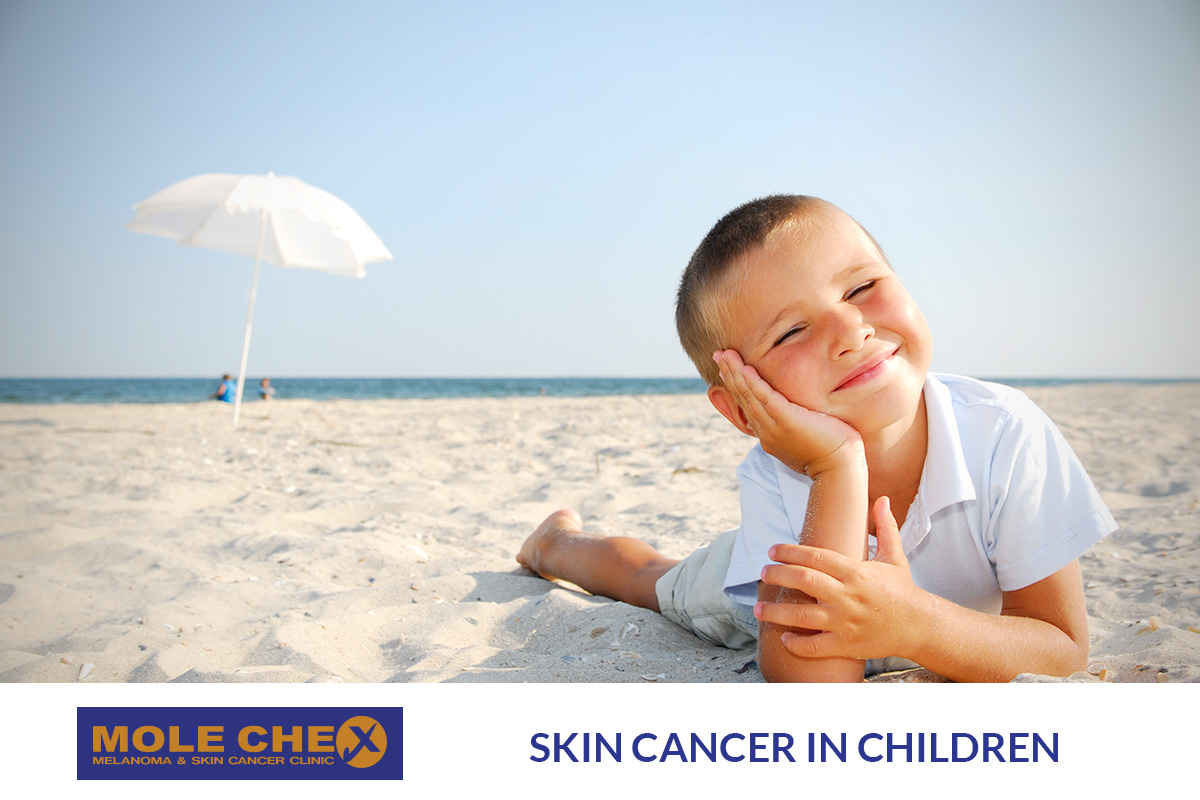Skin Cancer in Children – Causes, Risks, and Protection

As adults, we often associate skin cancer with the cumulative effects of sun exposure over the years. However, it’s crucial not to overlook the vulnerability of our little ones(children) to this potentially harmful condition. Discover the ins and outs of skin cancer in children – from causes to practical prevention tips. Learn how to empower your little ones against potential risks and the importance of regular skin checks. Knowledge is the key to protection! In this comprehensive guide, we’ll delve into the specifics of skin cancer in children, covering causes, risks, protective measures, and the importance of regular skin checks.
Understanding Skin Cancer in Children
Children, though resilient, are not immune to skin cancer. While rare, certain factors can contribute. We explore the types of skin cancer that can affect children, such as melanoma, basal cell carcinoma, and squamous cell carcinoma. Understanding the distinct features of these cancers is the first step in safeguarding your child’s skin health.
Causes and Contributing Factors
Identifying the causes of skin cancer in children is pivotal for prevention. We’ll explore genetic predispositions, environmental factors, and instances where certain medical conditions or treatments increase the risk. This knowledge empowers parents and caregivers to make informed decisions to mitigate potential risks.
Risks Associated with Childhood Skin Cancer
From fair skin to the geographical location, various factors heighten a child’s susceptibility to skin cancer. Unraveling these risks equips parents with the tools needed to create protective strategies. We’ll discuss how factors like sun exposure, family history, and specific syndromes can impact a child’s vulnerability.
Tips for Prevention
Prevention is paramount. This section offers practical tips for shielding children from the harmful effects of UV rays. From sun-safe clothing choices to the correct application of sunscreen, these strategies are crucial in minimizing the risk of skin cancer. We’ll also touch on the importance of shade, especially during peak sunlight hours.
- Regular Outdoor Breaks: Encourage breaks in shaded areas during outdoor activities to minimize prolonged sun exposure.
- Hydration and Diet: Emphasize the importance of hydration and a diet rich in antioxidants, which can contribute to overall skin health.
- Educational Initiatives: Propose educational programs in schools about sun safety to instill good habits from an early age.
Regular Skin Checks for Children
Early detection is a game-changer in the fight against skin cancer. We emphasize the significance of regular skin checks for children, outlining what parents should look for and when professional medical intervention is warranted. Educating parents on monitoring moles, freckles, and any changes in the child’s skin is vital.
- Professional Dermatological Checks: Stress the importance of annual check-ups with a pediatric dermatologist for a thorough examination.
- Empowering Parents: Provide resources or tools for parents to keep a simple log of any changes in their child’s skin, encouraging regular observation.
FAQs About Skin Cancer in Children
This section addresses common queries parents might have. We cover topics such as how often skin checks are necessary, when to involve a dermatologist, and the role of genetics in childhood skin cancer. Educating parents on these frequently asked questions fosters a proactive approach to their child’s skin health.
- Genetic Counseling Resources: Provide information about available genetic counseling services for families with a history of skin cancer.
- Sunscreen Recommendations: Clarify doubts about sunscreen use for children, emphasizing the importance of choosing child-friendly, broad-spectrum options.
By exploring these key areas, parents and caregivers can be proactive in protecting their children from the potential risks of skin cancer. From understanding the causes to implementing preventive measures, this guide aims to be a comprehensive resource for promoting skin health in our little ones.
Still interested? Read other articles :
